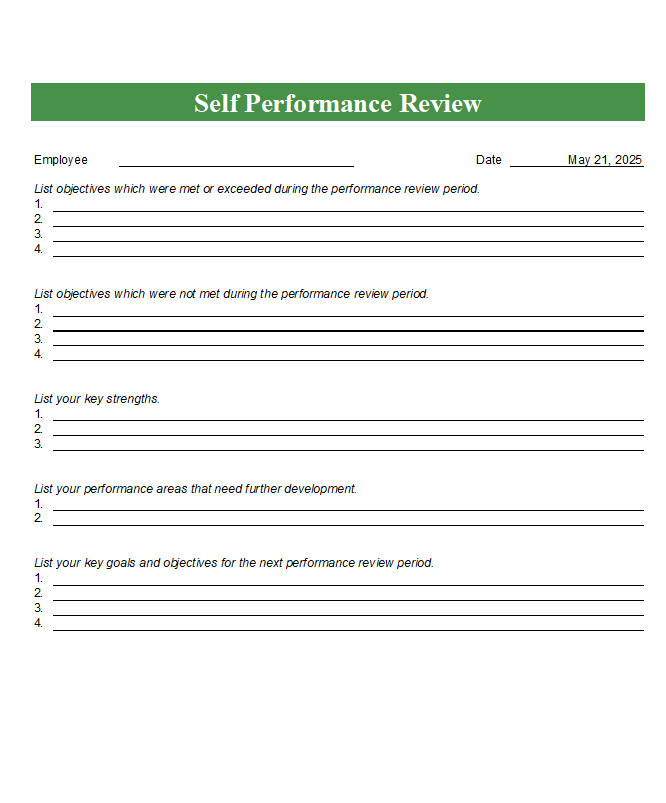
In today’s fast-paced work environment, employees need to take ownership of their career development. One way to do this is through self-performance reviews. These reviews provide employees with an opportunity to assess their job performance, reflect on their accomplishments, and identify areas for improvement and growth.
By encouraging self-reflection, self-performance reviews promote a more proactive approach to career development.
What is a Self-Performance Review?
A self-performance review is a tool that allows employees to evaluate their performance in the workplace. It typically includes a series of questions or prompts that prompt employees to reflect on their achievements, challenges, and areas for improvement.
The goal of a self-performance review is to help employees take ownership of their professional development and set goals for the future.
Why are Self-Performance Reviews Important?
Self-performance reviews are important for several reasons.
First, they provide employees with a structured opportunity to reflect on their performance and identify areas for growth. This self-reflection can help employees gain a better understanding of their strengths and weaknesses, as well as areas where they may need additional support or training.
Additionally, self-performance reviews can be a valuable tool for goal setting and career planning, as they encourage employees to think about their long-term aspirations and how they can achieve them.
How to Conduct a Self-Performance Review
Conducting a self-performance review is a straightforward process. To begin, employees should set aside dedicated time to complete the review in a quiet and distraction-free environment.
They should carefully read through each question or prompt and take the time to provide thoughtful and honest responses. It can be helpful to gather feedback from colleagues or supervisors before completing the review to gain additional perspectives on performance.
Examples of Self-Performance Review Questions
Some examples of questions that may be included in a self-performance review include:
- What accomplishments are you most proud of this year? Reflect on specific projects or tasks that you completed.
- What challenges did you face, and how did you overcome them? Discuss any obstacles you encountered and how you navigated them.
- What skills or knowledge do you feel you need to develop further? Consider areas where you could benefit from additional training or support.
- How do you contribute to your team or organization’s goals? Reflect on your role within the larger context of the organization.
- What are your career goals for the next year? Consider where you see yourself professionally in the future.
- What support or resources do you need to achieve your goals? Identify any tools or assistance that would help you succeed.
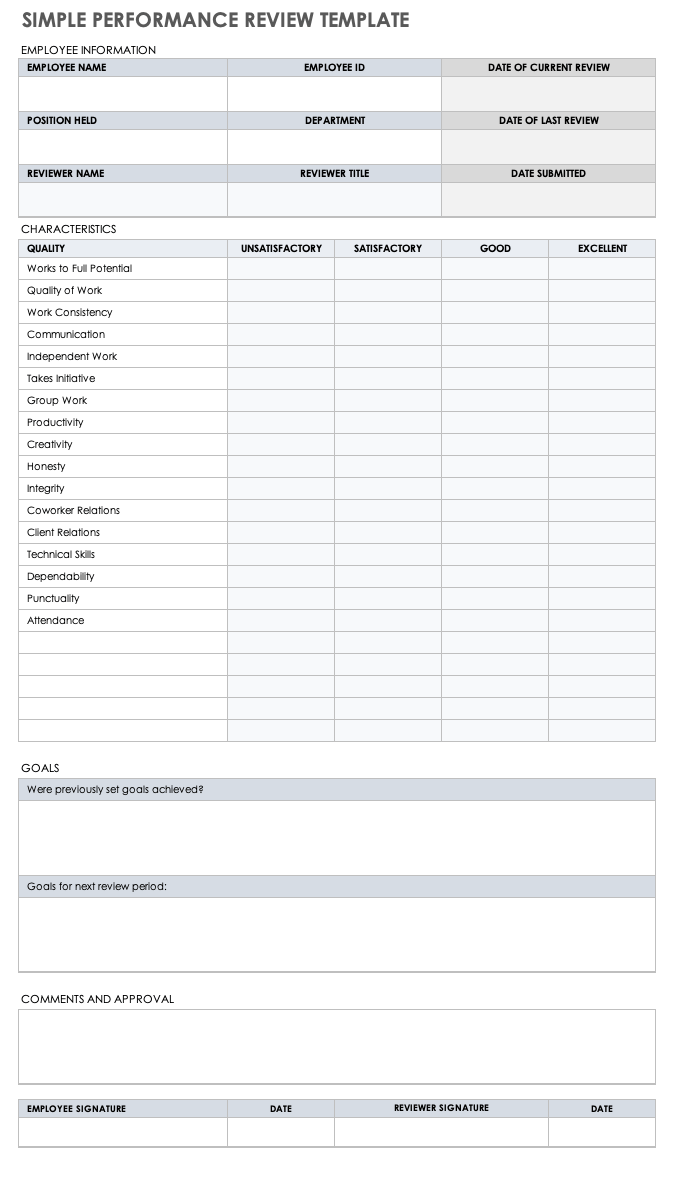
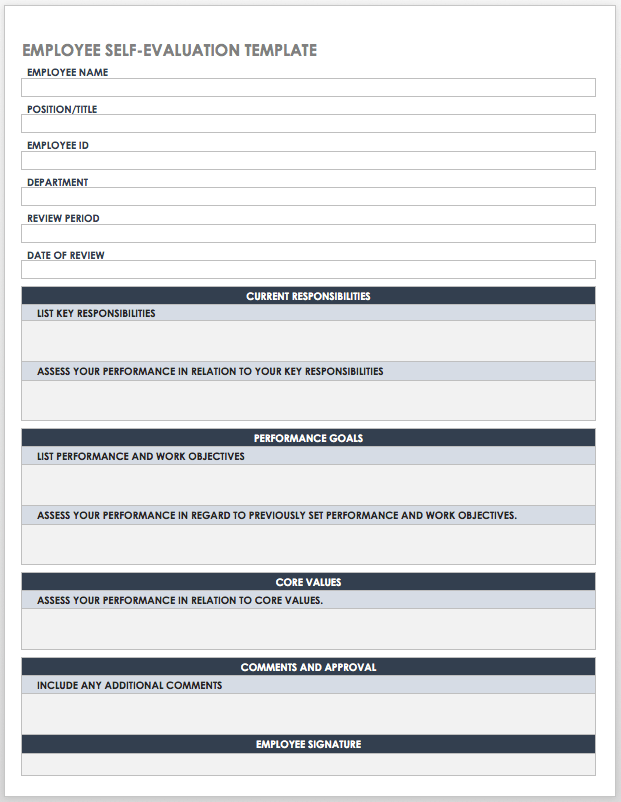
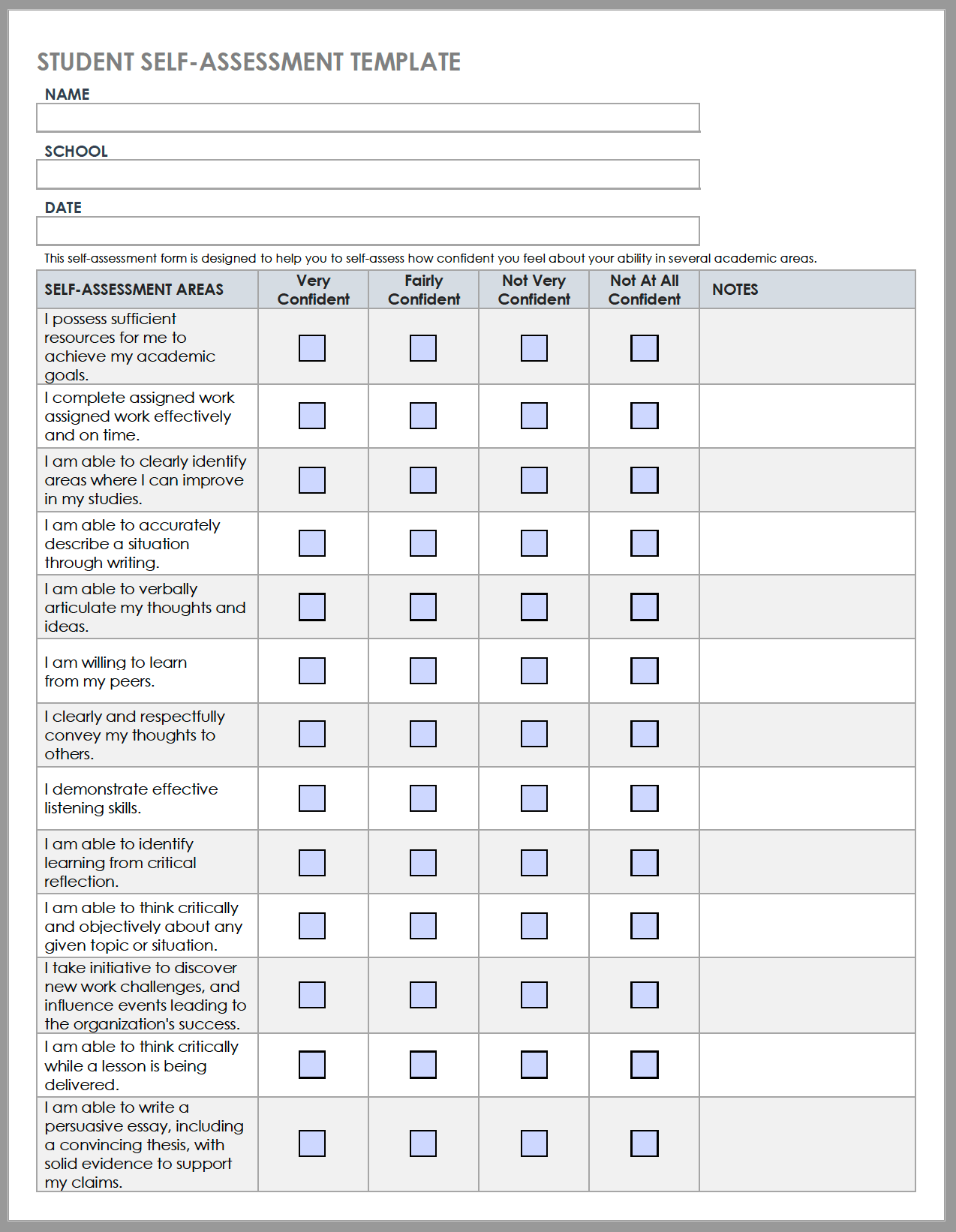
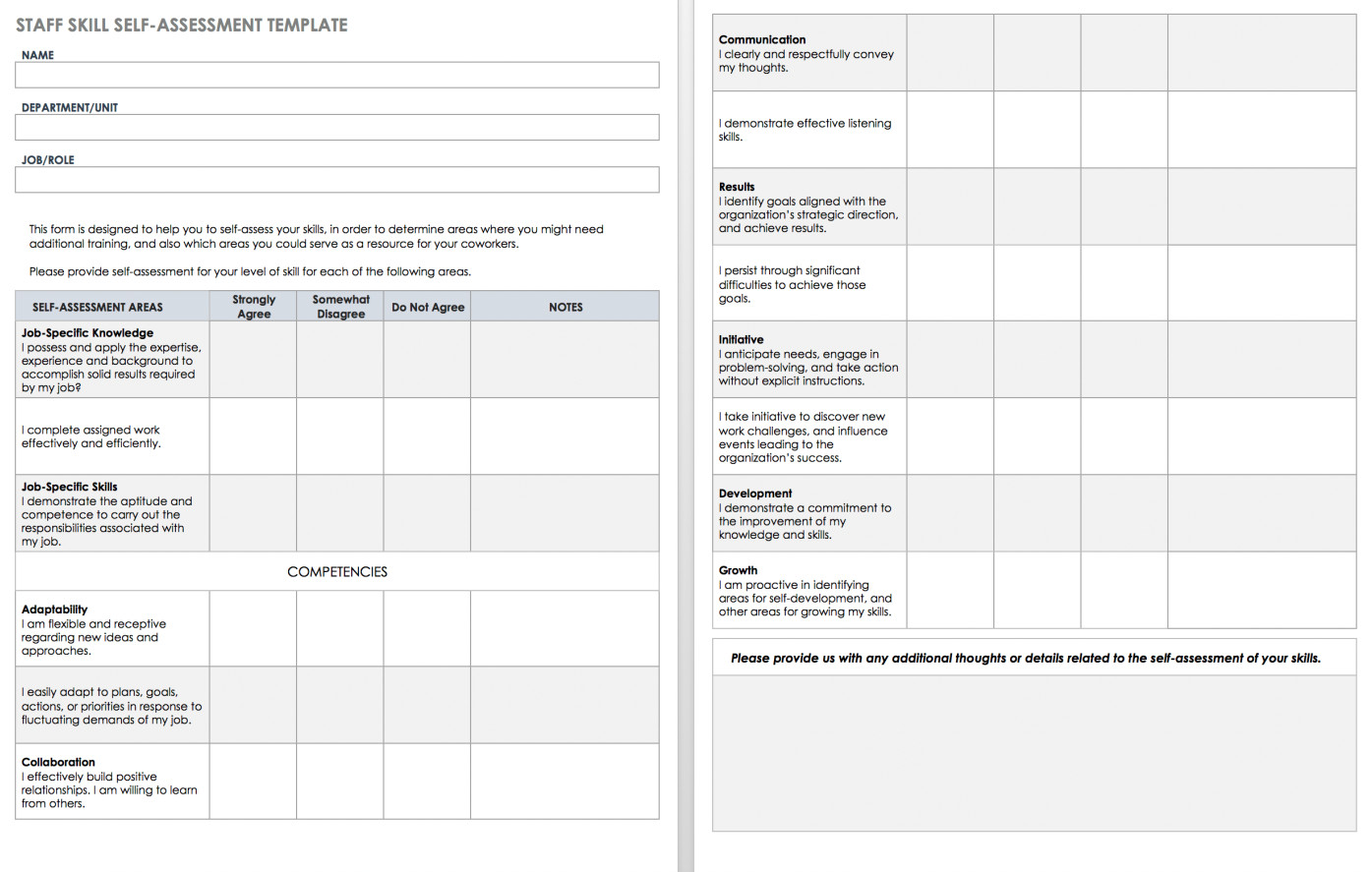
Tips for Successful Self-Performance Reviews
To make the most of a self-performance review, employees should keep the following tips in mind:
- Be honest and objective: Provide truthful assessments of your performance, strengths, and areas for improvement.
- Set specific goals: Use the review as an opportunity to set clear, actionable goals for your professional development.
- Solicit feedback: Seek input from colleagues or supervisors to gain a well-rounded perspective on your performance.
- Follow up: Use the review as a starting point for ongoing conversations about your career development with your manager or HR department.
- Take action: Use the feedback and insights from the review to make concrete changes and improvements in your work.
- Celebrate successes: Acknowledge your achievements and progress to stay motivated and engaged in your career development.
Self-Performance Review Template – Download
- Free Student Reference Letter Template (Word) - February 22, 2026
- Free Printable Greeting Card Template - February 19, 2026
- Printable Homeschooling Schedule Template - February 18, 2026